Edvard Munch
Madonna
Madonna
Description
Details
Details
- Giclée fine art print
- Museum-grade archival pigment inks
- Printed on 210g textured acid-free, fine-art paper
- Glass-free presentation, no framing required
- Backed by ClaimProof™ for authenticating and claiming
Dimensions
Dimensions
- Width: 12.6 in / 27 cm
- Height: 10.6 in / 32 cm
- Depth (thickness): 0.6 in / 15 mm
- Weight: 1.3 lb / 580 gr
Shipping & Returns
Shipping & Returns
Ships from the U.S.
Returns accepted within 14 days of delivery, unused and in original packaging.
Couldn't load pickup availability
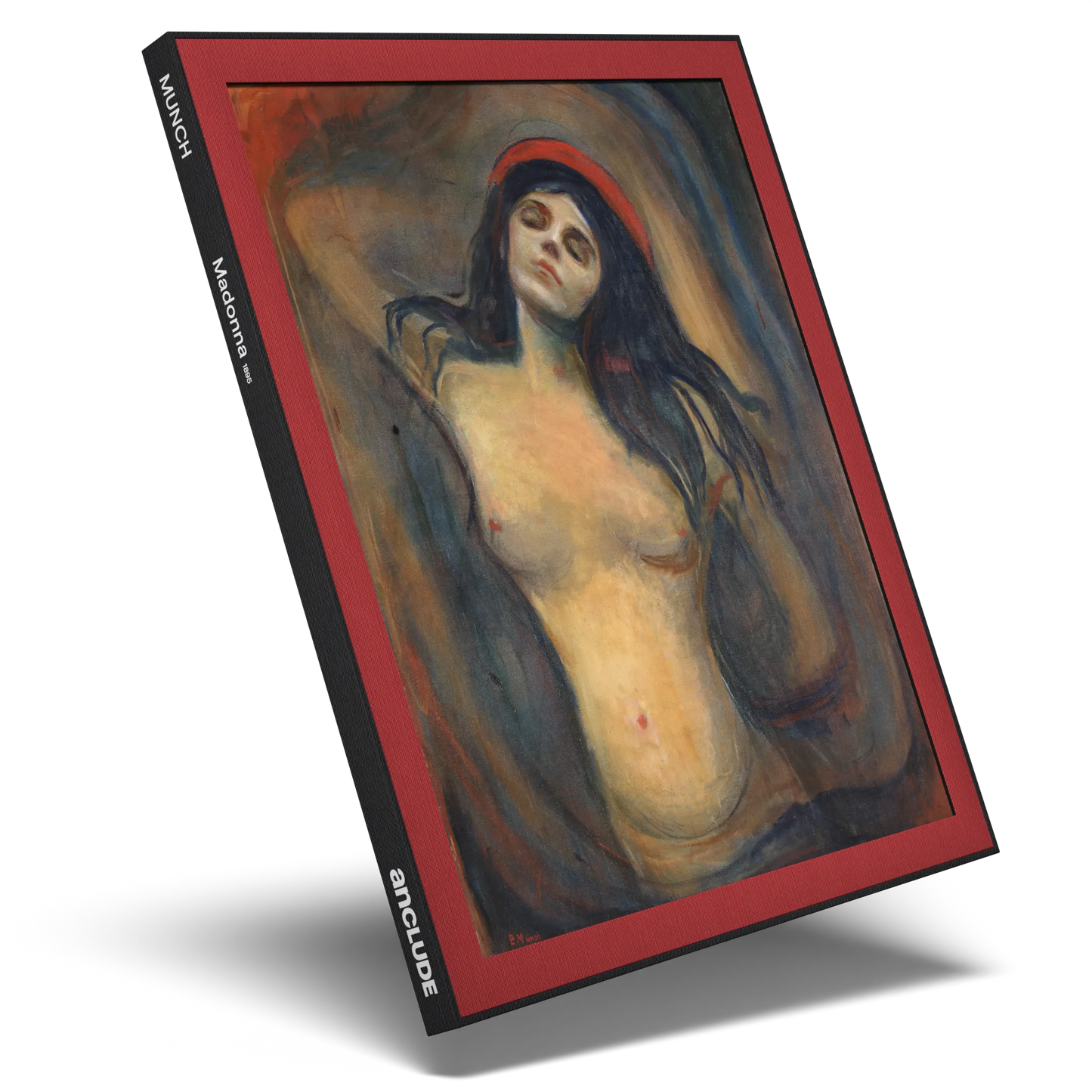
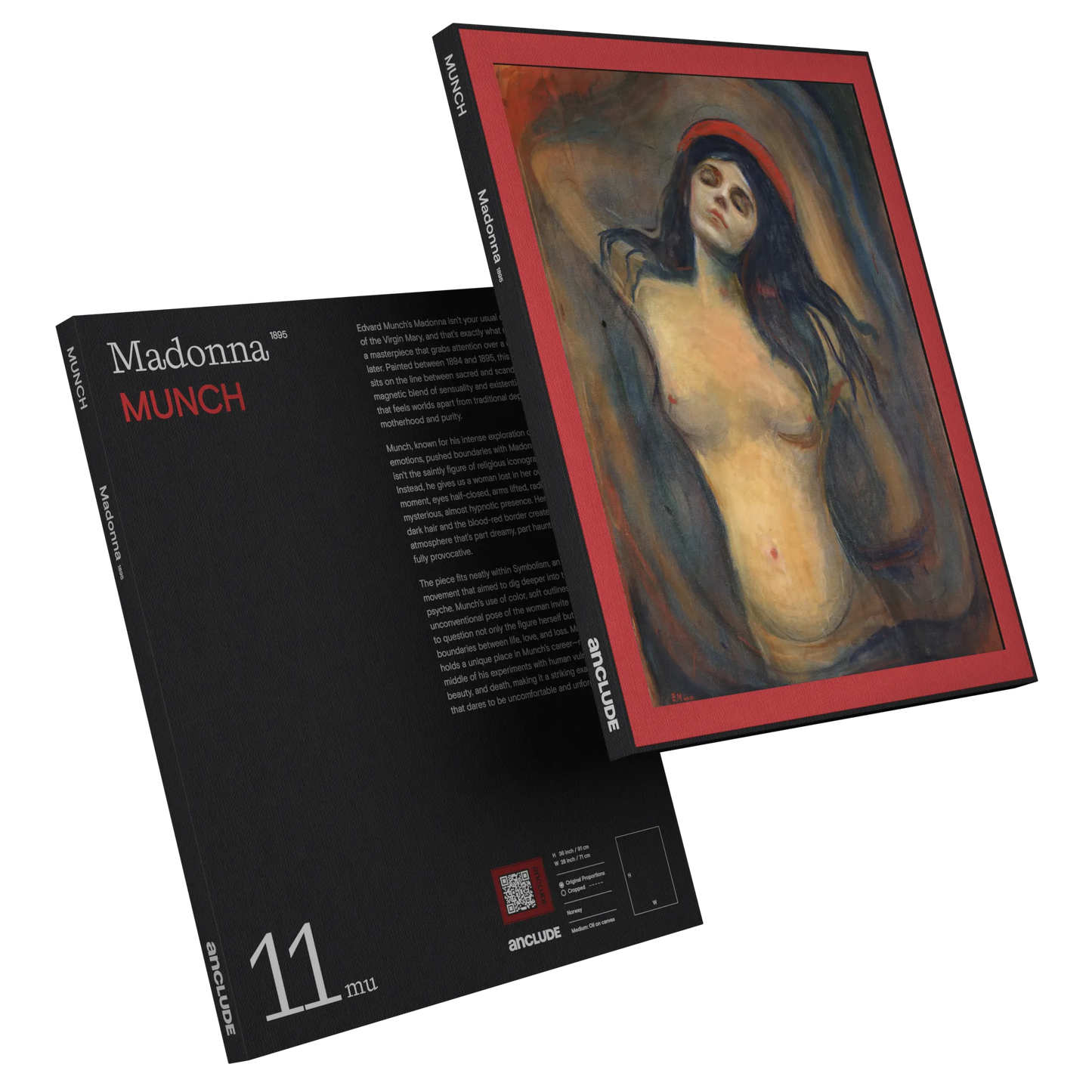
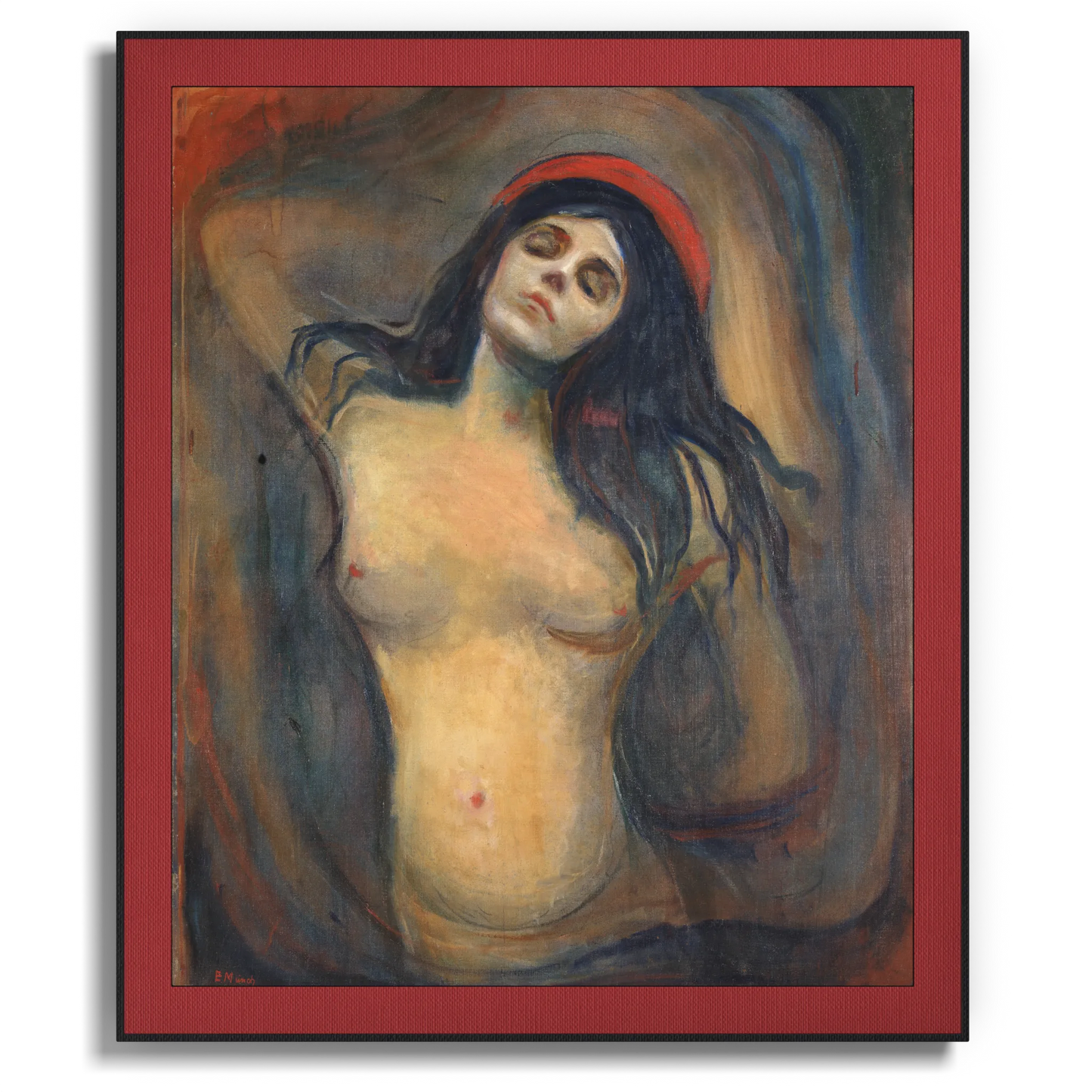
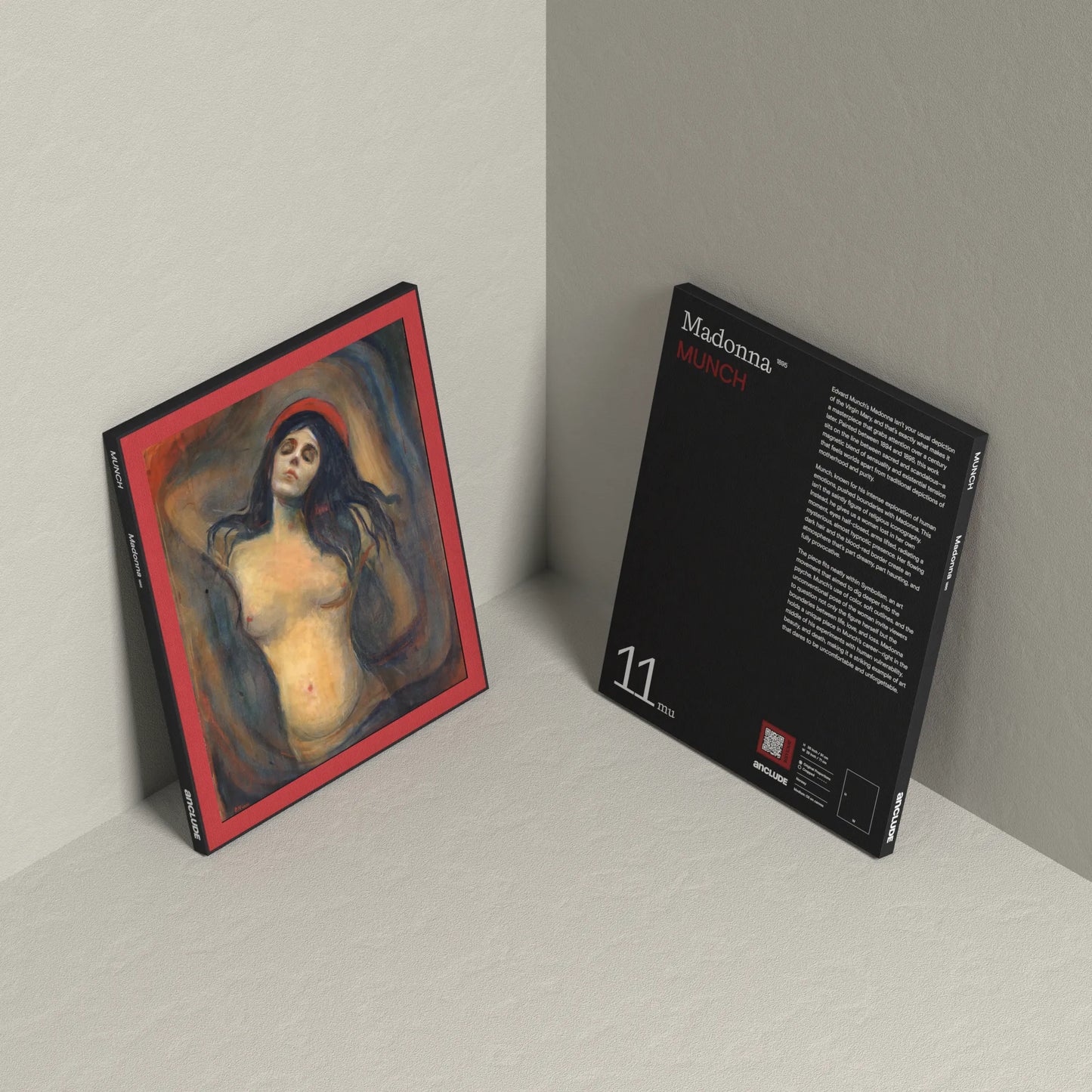

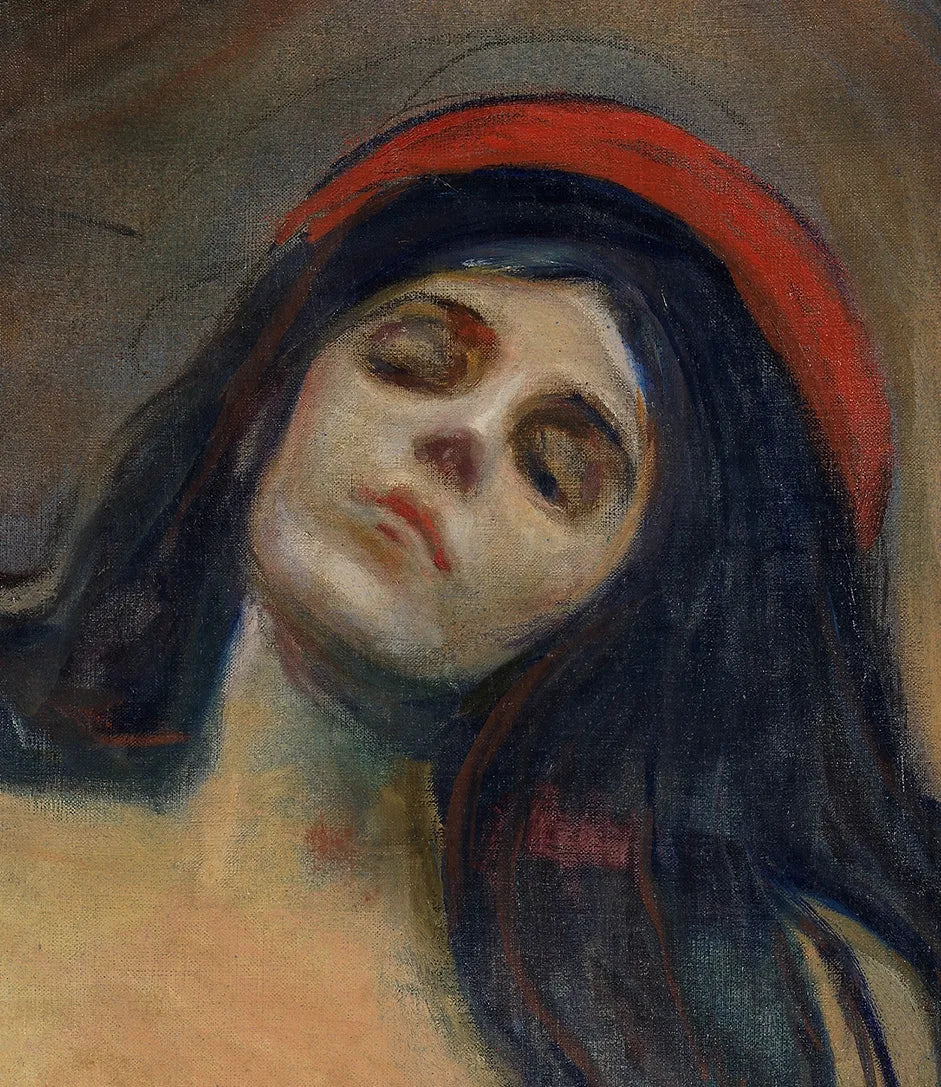
More About The piece
Edvard Munch’s Madonna isn’t your usual depiction of the Virgin Mary, and that’s exactly what makes it a masterpiece that grabs attention over a century later. Painted between 1894 and 1895, this work sits on the line between sacred and scandalous—a magnetic blend of sensuality and existential tension that feels worlds apart from traditional depictions of motherhood and purity.
Munch, known for his intense exploration of human emotions, pushed boundaries with Madonna. This isn’t the saintly figure of religious iconography. Instead, he gives us a woman lost in her own moment, eyes half-closed, arms lifted, radiating a mysterious, almost hypnotic presence. Her flowing dark hair and the blood-red border create an atmosphere that’s part dreamy, part haunting, and fully provocative.
The piece fits neatly within Symbolism, an art movement that aimed to dig deeper into the psyche. Munch’s use of color, soft outlines, and the unconventional pose of the woman invite viewers to question not only the figure herself but the boundaries between life, love, and loss. Madonna holds a unique place in Munch’s career—right in the middle of his experiments with human vulnerability, beauty, and death, making it a striking example of art that dares to be uncomfortable and unforgettable.
-

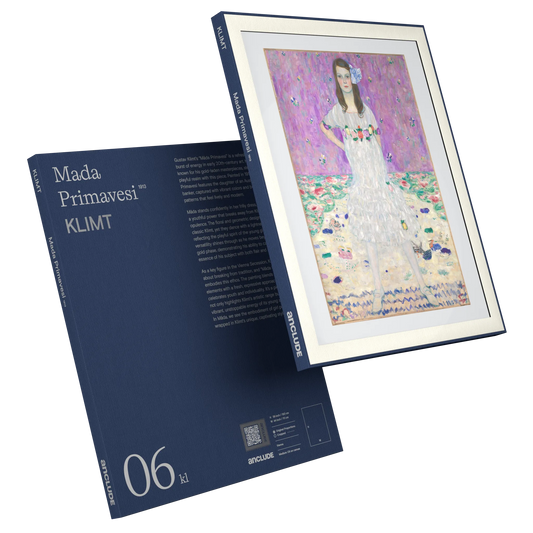 Regular price $70.00Regular priceUnit price / per
Regular price $70.00Regular priceUnit price / per -

 Regular price $70.00Regular priceUnit price / per
Regular price $70.00Regular priceUnit price / per






